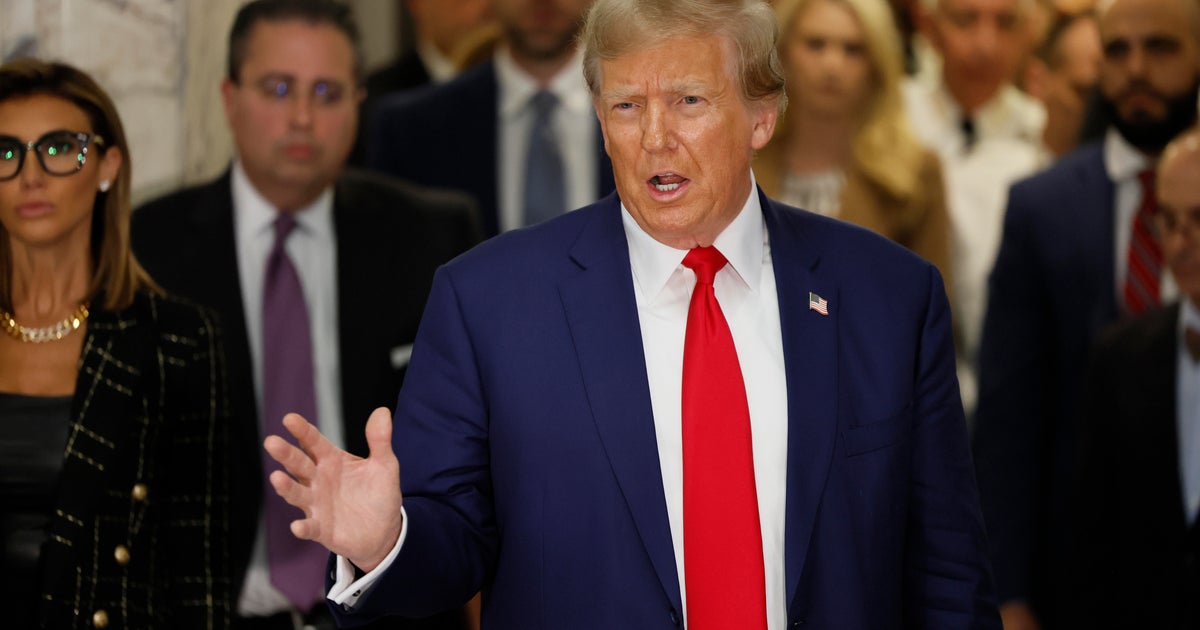To rephrase a news article with added details and analysis up to a word count of around 1000 words or more, let’s delve deeper into each aspect of the original information, expanding on the context, background, and implications of the events described:
Trump’s Half-Billion-Dollar Fraud Penalty Overturned by New York Appellate Court
In a significant legal development, a panel from a New York appellate court overturned a massive half-billion-dollar civil fraud penalty against former President Donald Trump and key figures in his business empire, citing the fine as “excessive” and breaching constitutional limits. The decision, emerging from the Appellate Division, First Judicial Department, came after a contentious appeal process that highlighted deep divisions within the court and a broader debate over legal accountability and political implications.
Historical Context and Initial Allegations
The case originates from allegations made by the New York Attorney General Letitia James in 2022, accusing Trump of orchestrating a decade-long scheme to inflate his net worth and the value of his properties. This was purportedly done to secure more favorable terms from banks and insurance companies. The lawsuit singled out not just Trump, but also his sons Eric and Donald Trump Jr., alongside several executives within the Trump Organization.
In February 2024, New York Judge Arthur Engoron ruled in favor of the state, ordering Trump and his co-defendants to disgorge nearly $364 million said to be ill-gotten, plus additional millions in accrued interest, culminating in a total sum of about $527 million. According to Judge Engoron, Trump was to be personally liable for nearly 98% of this amount, ostensibly reflecting his central role in the alleged fraudulent activities.
Legal Proceedings and the Appellate Decision
The case’s weight and Trump’s robust defense led to an appeal which was meticulously reviewed by a five-member appellate panel. Throughout their deliberations and oral arguments observed in September 2024, the panel expressed skepticism towards the size of the judgment. Issues were raised concerning the judgment’s immensity and its alignment with constitutional norms on punitive limits.
In their 323-page opinion issued in late 2024, the justices acknowledged their division, with two advocating for a new trial. Remarkably, the majority chose a path of vacating the financial penalty instead of outright dismissing the case or re-evaluating its merits. This decision was driven by concerns over the excessive nature of the fine, as noted by a justice criticizing the fine as not “a reasonable approximation” of the damages warranted.
Justice David Friedman, dissenting, underscored the odd judicial outcome where a majority disagreed with the verdict yet did not overturn it entirely, only the financial penalty. This led to what he termed a “remarkable situation necessitating a remarkable solution.”
Reactions and Broader Implications
The decision has stirred a broad spectrum of reactions. Trump celebrated what he described as a “TOTAL VICTORY” on social media, commending the appellate court for its courage in overturning what he saw as a misguided decision harmful to business interests across New York. Meanwhile, Attorney General Letitia James expressed resolve to appeal the decision but noted satisfaction that the court upheld some sanctions, including banning Trump from serving as an officer or director in any New York corporation for three years.
While Trump and his legal team view the ruling as a vindication, James and her office continue to see the appellate decision’s maintenance of certain sanctions as an affirmation of some legal breaches by Trump and his executives. Analysts suggest that the enduring legal challenges and scrutiny surrounding Trump could have significant implications for his business operations and possible future political ambitions.
Conclusion
The New York appellate court’s decision to overturn the half-billion-dollar penalty against Trump might not mark the end of this extensive legal battle. With potential appeals and further legal maneuvers on the horizon, the case underscores the intricate and often contentious intersection of law, politics, and business in the life of one of America’s most polarizing figures. As this legal drama unfolds, it continues to attract considerable attention and debate about accountability, political influence, and the rule of law in high-stakes financial fraud cases.
This expanded version provides a detailed narrative that explores the background, developments, and implications of the court’s decision while offering insights into the legal arguments and broader societal contexts surrounding the case.









